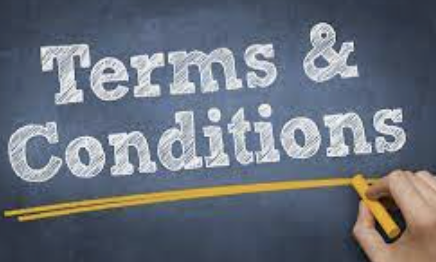The Benefits of Terms & Conditions
Running your own business is tough. It demands time, energy and commitment, and inevitably there is always something else that needs to be done.
As a business owner, you therefore have to prioritise, which can sometimes lead to a focus on service delivery with administrative tasks slipping down the to-do list for later.
However, these administrative tasks are still important to the success of your business, including protecting yourself by having standard terms & conditions.
Simply put, it is good commercial practice to ensure that you have some sort of written contract in place before you kick-off that important new piece of work you’ve just won.
Having a written contract removes ambiguity, and everyone is clear about what has been agreed and their respective obligations. This prevents misunderstandings, disputes and other problems arising down the line, fostering the development of a good business relationship.
Beyond this, the formal process of writing a contract also helps stop what should be important elements of your agreement somehow slipping through the net and being overlooked.
Standard terms and conditions
These are your default terms and conditions that you are normally going to want to form part of any written contract with a customer. Depending on your business, a good set of standard terms and conditions will typically cover areas such as:
- Payment terms
- Limitation of your liability
- Protection of your IP
- Dispute procedures
- Data protection and confidentiality
- Duration and termination
Three things to remember
1 – Whilst you may have standard terms and conditions this does not mean that your customers are automatically bound by them. They need to have agreed to this, ideally by signing a contract that expressly refers to them, and it is good business practice to reference them in your pre-sale correspondence or materials e.g. quotes or purchase orders.
2 – Remember who your customers are. A consumer contract can look very different from a business to business contract and should be drafted accordingly.
3 – Finally, whilst it might seem tempting, we do not advise you copy the standard terms and conditions of other businesses. There may be unintended consequences! Obtaining your own terms and conditions is an instance in which it really does pay to get legal advice to help you tailor something so that it matches your own, very particular needs.
When it all pays off
The classic example of when having Terms & Conditions pay off is is when the customer fails to pay or delays payment which of course hurts your cash flow.
Situations like these are never easy, and you can often be faced with having to think about using a mediation service or making a court claim and all the costs this entails.
However, armed with a clear, unambiguous written contract and written evidence of the agreed payment terms, you will be in the best position possible to advance your case and resolve the situation.
If you need help pulling together a set of standard terms and conditions for your business, get in touch, give us a call on 01225 58 57 56 or email Sarah at [email protected]. We’d love to help.





